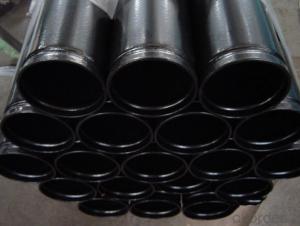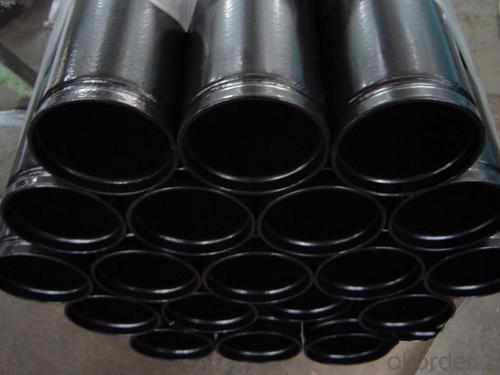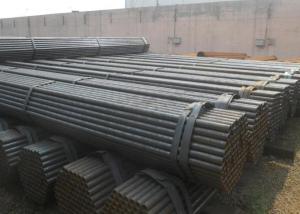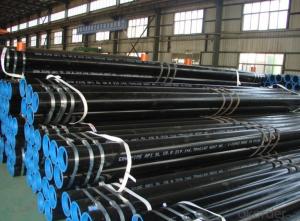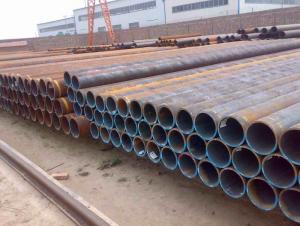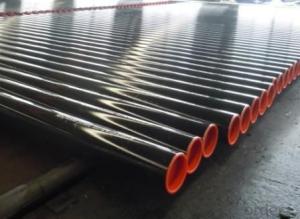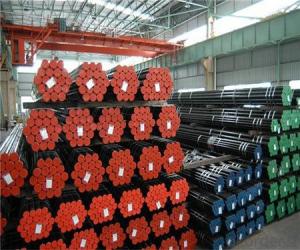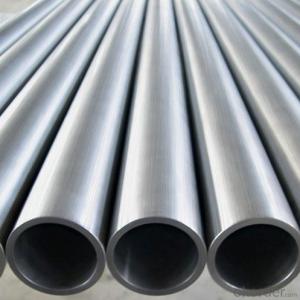ERW grooved pipes with ASTM and BS standard
- Loading Port:
- China Main Port
- Payment Terms:
- TT OR LC
- Min Order Qty:
- -
- Supply Capability:
- -
OKorder Service Pledge
OKorder Financial Service
You Might Also Like
Specifications
Grooved ends steel pipe,welded steel pipe
Q235,ASTMA53GRB Size:1"-12" Od.
Seamless grooved ends pipe
GROOVED STEEL PIPE
Coated pipe | ||
ERW | Standard | JIS ANSI ASME GB DIN BS API |
Grade | Q235(10#) Q345(16Mn) 20# X42-X65 J55 | |
Out Diameter | 33.4--406mm (1---16 inch) | |
Thickness | 3--14mm (0.12---3/5 inch) | |
SSAW | Standard | JIS ANSI ASME GB DIN BS API |
Grade | Q235B Q345(16Mn) A252 GR2,GR3 20# API 5L GRB X42-X100 PSL1,PSL2 | |
Out Diameter | 219--2220mm (8---88 inch) | |
Thickness | 6--30mm (1/3---4/5 inch) | |
SEAMLESS | Standard | JIS ANSI ASME GB DIN BS API |
Grade | 10# 20# 45# K55 J55 ST37 ST52 X42-X70 Q345(16Mn) | |
Out Diameter | 139.7--406mm (5-1/2---16 inch) | |
Thickness | 4--30mm (1-1/2---11/2 inch) | |
Length | 12m or as customers requirement | |
Manufacture Technique | ERW/SSAW/SEAMLESS | |
Surface Treatment | varnish coating or as customers requrement | |
Section Shape | round | |
Ends | Beveled or square cut, plastic capped | |
Alloy or not | Non-alloy | |
Packaging Details | export packing or negotiation | |
Payment Terms | L/C D/P T/T | |
Usage | water transport/boiler use/Chemical use/Construction use,Oil and Gas transport,drill water | |
Delivery Time | within 25 days after sign the contract | |
Minimum Order Quantity | 10 Ton | |
Supply Ability | 2000 Ton/Month | |
- Q: Can steel pipes be used for steam distribution?
- Yes, steel pipes can be used for steam distribution. Steel pipes are known for their high strength and durability, making them suitable for carrying steam at high temperatures and pressures. Additionally, steel pipes have excellent thermal conductivity, allowing for efficient heat transfer during steam distribution.
- Q: What are the environmental impacts of steel pipe production?
- The environmental impacts of steel pipe production include the extraction of raw materials (iron ore, coal, and limestone) which leads to habitat destruction and soil erosion. The manufacturing process requires significant energy, contributing to greenhouse gas emissions and air pollution. Additionally, the production generates waste materials, such as slag and by-products, that can contaminate water sources if not properly managed. Finally, the transportation of steel pipes adds to carbon emissions and can disrupt ecosystems if not done sustainably.
- Q: What are the alternatives to steel pipes for various applications?
- Some alternatives to steel pipes for various applications include plastic pipes (such as PVC or HDPE), copper pipes, cast iron pipes, and concrete pipes. Each alternative has its own set of advantages and disadvantages, and the choice depends on factors such as cost, durability, corrosion resistance, and specific application requirements.
- Q: How are steel pipes affected by international trade policies?
- Steel pipes can be significantly impacted by international trade policies. These policies can include tariffs, quotas, and other trade barriers that affect the import and export of steel pipes. Changes in trade policies can lead to fluctuations in prices, supply, and demand for steel pipes. Additionally, trade policies can also influence the competitiveness of domestic steel pipe producers in the global market.
- Q: Can steel pipes withstand high temperatures?
- Yes, steel pipes can withstand high temperatures as they have a high melting point and excellent heat resistance properties, making them suitable for various industrial applications involving high temperature environments.
- Q: Can steel pipes be used for underground water treatment systems?
- Yes, steel pipes can be used for underground water treatment systems. Steel pipes are commonly used in underground applications due to their durability, strength, and resistance to corrosion. They provide a reliable and long-lasting solution for transporting water in underground water treatment systems.
- Q: How are steel pipes used in seaport infrastructure?
- Steel pipes are extensively used in seaport infrastructure for various purposes such as constructing piers, offshore platforms, and docking facilities. They are commonly used for building underwater foundations, pilings, and support structures that provide stability and strength to the port infrastructure. Steel pipes are also used in the construction of pipelines, drainage systems, and water supply networks within the seaport, ensuring efficient transportation of goods and materials. Overall, steel pipes play a crucial role in maintaining the structural integrity and functionality of seaport infrastructure.
- Q: How are steel pipes used in plumbing systems?
- Steel pipes are commonly used in plumbing systems for their durability and strength. They are used to transport water, gas, and waste materials in both residential and commercial buildings. Steel pipes are known for their resistance to corrosion and high pressure, making them ideal for underground and outdoor applications. Additionally, steel pipes are often used for plumbing fixtures such as faucets, showers, and toilets, providing a reliable and long-lasting solution for water distribution and drainage.
- Q: How are steel pipes insulated?
- Steel pipes can be insulated using various methods such as applying insulation materials like foam or fiberglass wraps, using thermal tapes, or employing pre-insulated pipe systems where insulation is integrated into the pipe during manufacturing.
- Q: Can steel pipes be used for underground power transmission?
- Yes, steel pipes can be used for underground power transmission. Steel pipes are commonly used in underground power transmission systems due to their durability, strength, and resistance to corrosion. They provide a protective casing for the power cables, ensuring their safety and preventing damage from external factors such as moisture, soil movements, and potential impacts. Steel pipes also allow for easy installation, maintenance, and repair of the power transmission system. Additionally, their ability to withstand high pressure and temperature makes them suitable for carrying the high voltage electricity required for power transmission. Overall, steel pipes are a reliable and efficient choice for underground power transmission.
Send your message to us
ERW grooved pipes with ASTM and BS standard
- Loading Port:
- China Main Port
- Payment Terms:
- TT OR LC
- Min Order Qty:
- -
- Supply Capability:
- -
OKorder Service Pledge
OKorder Financial Service
Similar products
Hot products
Hot Searches
Related keywords
